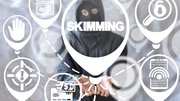News
MasterCard wants separate trial on debit antitrust claims
March 17, 2003
According to a Reuters report, MasterCard filed a motion in U.S. District Court for the Eastern District of New York arguing that trying both companies together would confuse a jury and that there is no evidence the two conspired together.
A lawyer for the retailers called the motion a delaying tactic.
In January, MasterCard attorney Kenneth Gallo asked the court to dismiss the claims against his client, arguing that most of the evidence being presented by the plaintiffs is against Visa.
Merchants led by Wal-Mart Stores Inc. charged in the 1996 lawsuit that Visa and MasterCard used their clout in the credit card business to crush smaller rivals in the debit card market. This resulted in higher fees for retailers, which passed them on to consumers.
The suit is set to go before a jury on April 28 in Brooklyn, but Visa and MasterCard have filed a joint motion to throw out the case. U.S. District Judge John Gleeson has not yet ruled on that motion.
(See related story Visa, MasterCard want judge to dismiss merchants' debit case)
Retailers say they shouldn't be forced by Visa and MasterCard to accept debit cards that are verified with a signature and incur fees of about $1.50 per $100 transaction. EFT networks charge as little as 10 cents to authorize transactions using PINs, they say.
MasterCard said in its brief that a majority of the internal documents cited by the merchants' lawyers name only Visa, and it claims it has a more cordial relationship with networks such as NYCE, Pulseand Star Systems.
"After more than six years of litigation, 350 fact and expert depositions, and the exchange of millions of documents, plaintiffs have not -- and cannot -- prove by any evidence, much less a preponderance of evidence, any conspiracy between MasterCard and Visa," said Noah Hanft, MasterCard's general counsel.
Lloyd Constantine, a lawyer for the merchants, said Visa and MasterCard have used a common defense throughout the trial and should be considered together because they are essentially owned by the same banks, all of which issue or have issued both brands of cards.
"This is simply an attempt to delay the case," Constantine said through a spokesman. "I can't believe this is a serious motion. If it were serious, it would have been done three years ago."
MasterCard said in its brief that applying evidence using internal Visa documents would confuse jurors at a trial, making it difficult for them to differentiate between the two companies and determine MasterCard's liability.
Of the merchants' two antitrust claims, one charges that both associations conspired together to monopolize and one charges that Visa alone attempted to monopolize. None of the claims say that MasterCard attempted to monopolize on its own, according to Reuters.
MasterCard has said it pushed PIN-based technology in the early 1980s, but retailers did not invest in the necessary PIN pads. The firm said it changed course because it was losing ground to Visa, which was pushing signature-based cards.
 ChatGPT
ChatGPT Grok
Grok Perplexity
Perplexity Claude
Claude












